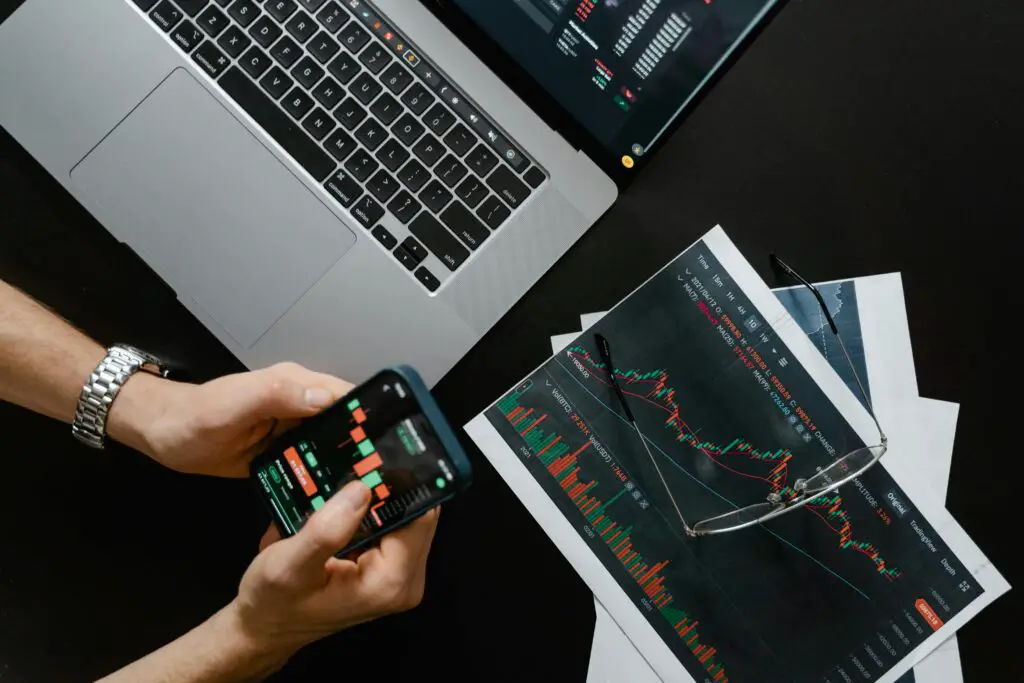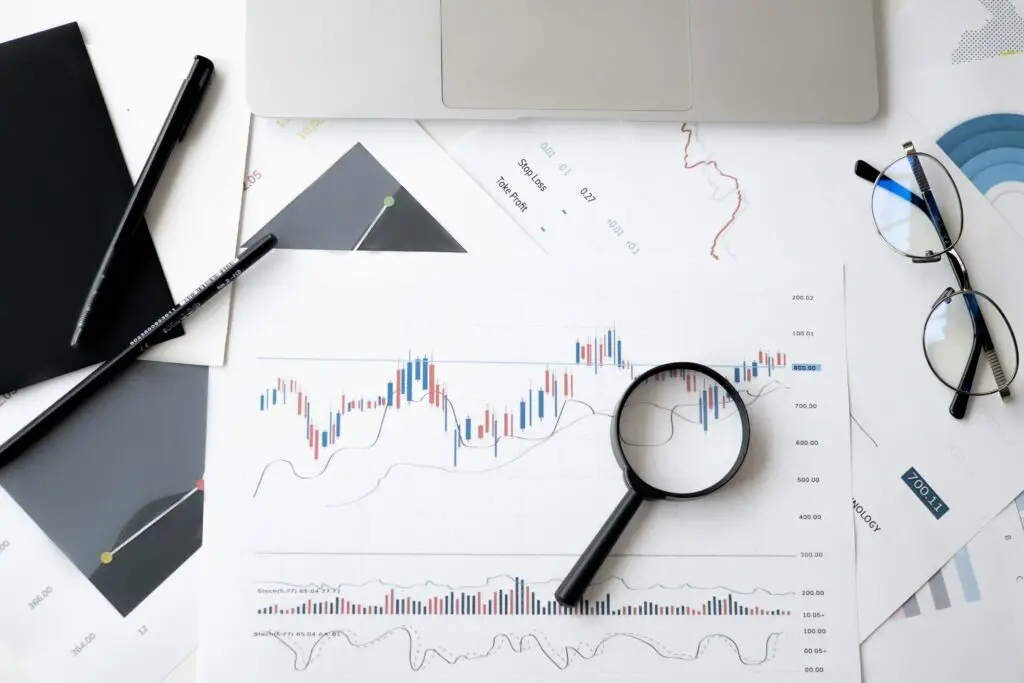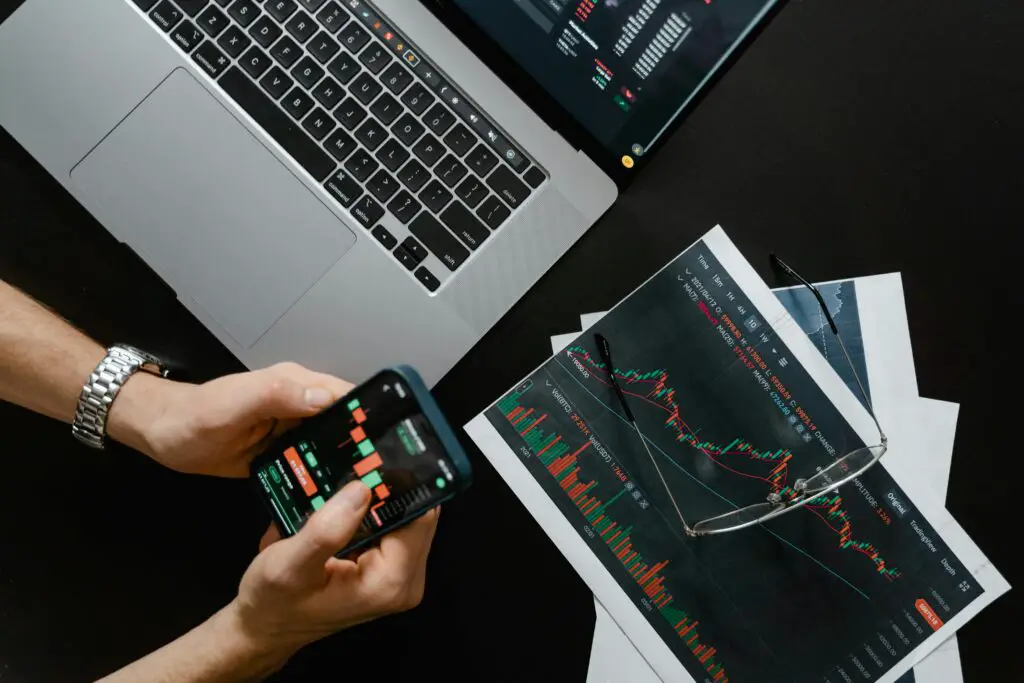People from all over the world can trade their funds on the foreign exchange market. It stands for “Large Daily Product.” The GDP is one of the most important financial numbers that has a big impact on the forex market. GDP is a way to see how well the economy of a country is doing. It tells you how much its goods and services were valued at some point in time. People who trade, buy, and make laws need to know about GDP in order to understand how it affects the foreign exchange market. This piece offers you everything you need to know about GDP, like how to figure it out, what it means for the forex market, and how to use GDP numbers when trading forex.

What does GDP mean?
When you look at all the goods and services made in a country over some time, like a year or a quarter, you can find its GDP. It covers what people and businesses spend, what the government spends and net exports, which are exports minus imports. GDP can be found in three ways: output (work), income (income), and spending (spending).
Approach to Production: With this method you add up the worth that is added at each stage of output. Here is the difference between the value of output and the value of uses in the middle.
Income Approach: To figure out GDP, this method adds up all the money that people and businesses make in the economy, like salaries, income taxes and government grants.
Spending Method: This method adds up all the money that leaves the economy, like when people buy things, when businesses invest, when the government spends, and when goods are sent outward.
Why GDP is Important for Economic Analysis
The GDP is a key indicator of how safe and healthy an economy is. It tells politicians, investors and economists how busy the economy is, which helps them decide what to do. Things are going well with the business when GDP growth is high. This can mean more jobs and higher incomes. GDP growth that is low or negative means that the economy is not doing well. This may result in slumps and greater joblessness.
What GDP Does for the Forex Market
The foreign exchange market reacts quickly to news about the economy. One of the most important things that affects the value of a currency is its GDP. The following is how GDP changes the foreign exchange market:
Value of the currency: A high GDP growth rate always means that the economy is growing quickly, which makes the currency stronger. Investors are more likely to put money into a country with strong economic growth, which makes the currency of this nation more valuable.

Rates of Interest: When deciding on monetary policy central banks like the US the central bank and the European Central Bank keep a close eye on GDP growth. Interest rates may need to go up to stop growth if the GDP grows quickly. Investors who want to make more money will be more interested in the coin after this.
Investor Confidence: Investors feel better when the GDP report is good. In turn, this makes them spend more on their assets, which makes the currency even stronger. When GDP numbers are lower than projected, on the other hand, capital can leave the country, and the currency can lose value.
Trade Balance: The foreign exchange market is affected by the trade of a nation balance which is a result of its GDP figures. When an economy grows quickly, people and businesses may spend more, which means that more goods are brought in from other countries. Whether there is a trade imbalance or surplus could cause the value of the currency to change.
How to Read GDP Numbers When Trading Forex
Forex traders wait for GDP reports with bated breath to guess what will happen with the currency. These are some important things that clients think about when they look at GDP numbers:
Annual Data vs Quarterly Data: GDP data collected once a year gives a general picture of the health of the economy, but data collected every three months is needed to spot immediate developments and make purchases quickly.
Actual Gross Domestic Product (GDP), on the other hand, takes hyperinflation into account. This makes it a more accurate way to measure economic growth because it shows the real rise in goods and services made. If prices have changed a lot, the total GDP that has not changed to account for inflation may not tell the whole story.
Changes to the GDP: As more complete data comes in, the first numbers on the GDP are often changed. Because they can change what the market thinks and how much a currency is worth, these changes are important for traders.

The four parts of GDP are spending, investment, government spending, and net exports. Traders can better understand what causes economic growth and project future trends by looking at these parts.
How to Use GDP Data in Forex Trading: Plans
If traders know how to use GDP figures well they can make more money on their forex trades. These plans should help you:
News Trading: With this method you trade based on how the market responds right away to GDP reports. Traders guess how the market will move by looking at real data and predicted GDP numbers. They then make money from market ups and downs.
Traders choose investments for a while by looking at GDP data and other economic data, like job reports, inflation rates and comments from the central bank.
Some traders use GDP data and technical analysis to guess how coins will move in the future by looking at how prices have changed in the past and how trends show up on charts. Also, they might look at GDP numbers to see if the technical signs are correct.

Traders spread their risks by putting money into a variety of goods and currencies. They can make sure their investments are spread out so they are safe in case the economy in some areas goes down if they know how GDP affects different countries.
Effects of GDP on Major Currencies
US Dollar (USD): The US Dollar (USD) is the global main reserve currency so changes in the US GDP have a big effect on the USD. A strong dollar is a sign that the US economy is doing well. This is because buyers want to make money in a safe economy with high returns. For instance, the USD went up a lot when the economy was doing well, like in the late 1990s and early 2000s.
Suppose you trade the EUR/USD pair, which is one of the most important currency pairs in the world you need to know the GDP numbers for the Eurozone. It can be hard to understand the numbers when there are differences in GDP between countries in the Eurozone. Strong GDP growth in the Eurozone, on the other hand, tends to make the euro stronger.
Yen (JPY): the GDP of Japan has grown less quickly than other major economies in the past. The yen is often used as a haven currency, and when the world economy is shaky, its value goes up. The yen can go up in value and though when the GDP of Japan grows quickly. This happened when the economy was going through big changes and then getting better.
British Pound (GBP): The monthly GDP report for the UK is a key indicator for the GBP/USD pair. It shows how events in the economy, like Brexit, have had significant effects on the value of the pound.
For forex buyers, this means that GDP numbers are even more important. The pound usually got stronger when GDP growth was high, like in the late 1990s. This showed that investors were sure the UK economy would do well. But since Brexit the pound has often been weaker because the economy is less stable and GDP growth has slowed down.
Problems with Trading Forex with GDP Data

GDP data can help forex traders a lot, but it can also be hard to use. These things might not work out:
When the data is given and how it is changed: GDP data is usually released every three months, so traders may wait to get the most current data. Also the first GDP numbers are often changed as more information comes in. This can make market changes that no one saw coming.
The GDP number is hard to fully understand because you need to know a lot about economics and how all the different parts work together. GDP numbers can be hard for new traders to understand because they are so complex.
Many outside factors can change GDP numbers and currency values. These include events in the government, natural tragedies, and the way that international trade works. These things cannot always be taken into account when the GDP is calculated which can make currencies move in strange ways.
Market Sentiment: GDP data does not constantly render sense or cause the fixed market to react predictably. Market sentiment, which is shaped by the thoughts and actions of buyers and traders, can sometimes make GDP numbers appear too high or too low.
In conclusion
The foreign exchange market is affected by GDP, so people who do that need to know about it. There are many ways to look at GDP, but the main one is how healthy an economy is and how apt it is to grow. If forex traders understand GDP data correctly, they can learn helpful things about how currencies will move in the future, which can help them make smart trading decisions.
When traders look at GDP numbers along with other economic indicators and market situations, they can make solid plans to take advantage of market opportunities. Even though the forex market is difficult, traders can find it much easier to deal with the rapid and often volatile forex market if they know how to use GDP numbers.
When they understand GDP trends and what they might mean for them, this is because they may match how they trade with bigger economic trends. You need to use GDP numbers in your trade plans if you want to do well on the forex market. That is always the case whether you use basic analysis, technical analysis, news trading or any other method.

